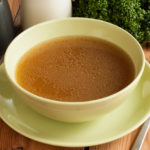National Chocolate Day: Can It Fit Into a Paleo Inspired Regime?
It’s National Chocolate Day, so what better time to eat it to your heart’s content, starting with breakfast?
Kidding!
But it got your attention, right?
OK, enough of the funny stuff (don’t say it- I know, it wasn’t funny…).
In all seriousness, enjoying a piece of raw, dark chocolate now and then, along with a lovely glass of cab, are two indulgences I find that for most clients can serve to be the deal maker in terms of whether or not they’re interested in trying and then maintaining a Paleo inspired routine or not.
And in the broad scheme of things, what better treat can there really be than a little bit of the most natural, unadulterated dessert that’s been around for a very, very long time?
Many modern historians have estimated that chocolate has been around for about 2000 years, but recent research suggests that it may be even older.
In the book The True History of Chocolate, authors Sophie and Michael Coe make a case that the earliest linguistic evidence of chocolate consumption stretches back three or even four millennia, to pre-Columbian cultures of Mesoamerica such as the Olmec.
Interestingly, for about 90 percent of chocolate’s long history, it was strictly a beverage, and sugar didn’t have anything to do with it[1].
In addition to a rich history, chocolate also has a long list of health benefits including[2]:
- Flavonoids help protect plants from environmental toxins and help repair damage. When we eat foods rich in flavonoids, it appears that we also benefit from this “antioxidant” power.
- Antioxidants are believed to help the body’s cells resist damage caused by free radicals that are formed by normal bodily processes. If your body does not have enough antioxidants to combat the amount of oxidation that occurs, it can become damaged by free radicals. For example, an increase in oxidation can cause low-density lipoprotein (LDL), also known as “bad” cholesterol, to form plaque on the artery walls.
- Flavanols are the main type of flavonoid found in cocoa and chocolate. In addition to having antioxidant qualities, research shows that flavanols have other potential influences on vascular health, such as lowering blood pressure, improving blood flow to the brain and heart, and making blood platelets less sticky and able to clot.
Sourcing the chocolate you eat, just like any other food you’re planning to ingest, is of utmost importance and don’t make the mistake of kidding yourself into thinking that a Snicker’s bar is a good source of antioxidants.
Most commercially available chocolates are so highly processed, loaded with sugars and have undergone Dutch processing (treating with an alkali to neutralize its natural acidity), leaving them not much more desirable from a nutritional standpoint than a cup of sugar.
Even many of the higher end chocolate, though perhaps not as refined, still tend to contain soy lecithin, used as an emulsifier, making them not a great option for anyone trying to avoid this sneaky little legume.
Be sure to choose at minimum, 85%, but make it a goal to wean yourself off of any sugar at all, and aim more towards my personal favorite, the 100% Xochipilli.
Dark as midnight on a moonless night, and more decadent with an incredible mouth feel that is unlike any other!
No time to rifle through all the many options overflowing off the shelves this year, especially during Halloween, to choose the best option?
No problem!
Check out Barefoot Provisions, who are offering a great savings right about now.
And, since it is a special occasion and you may feel you don’t want your kids to miss out on the festivities, wouldn’t it be better to at least make sure the sweets they eat are the better options than the mainstream junk?
Barefoot has a Halloween line, too.
Better a small piece of the real deal now and then to provide satiety to your palate as well as your mind, than creating a feeling of deprivation that can send some off the deep end.
Enjoy!
Feeling creative? Check out my recipe for RAW CHOCOLATE COVERED WALNUTS WITH BERRIES, published on Dr. Cordain’s Website.
[1] “A Brief History of Chocolate.” Smithsonian. Smithsonian, n.d. Web. 28 Oct. 201
[2] “Heart-Health Benefits of Chocolate Unveiled.” Heart-Health Benefits of Chocolate Unveiled. N.p., n.d. Web. 28 Oct. 2015





